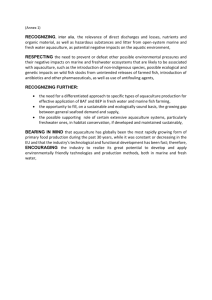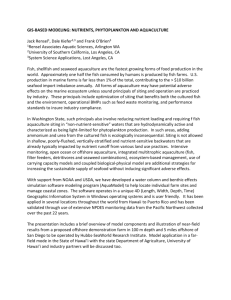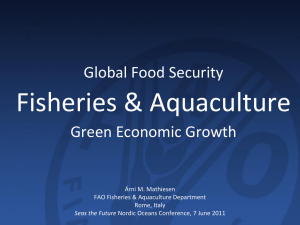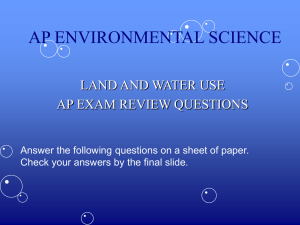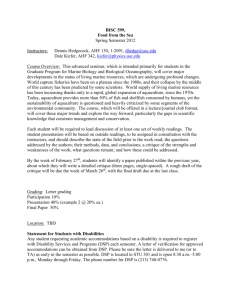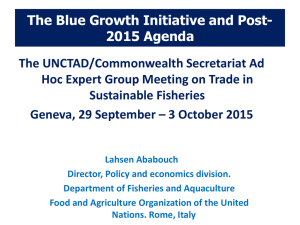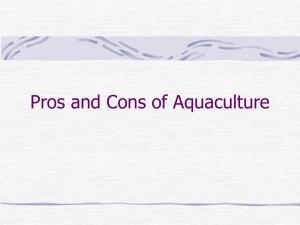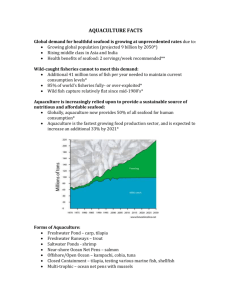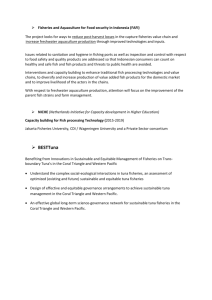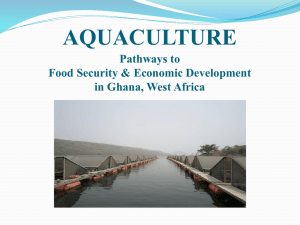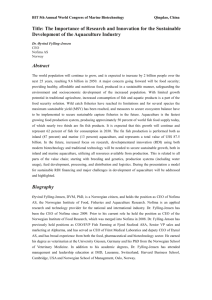The Role of Fisheries FS and nut
advertisement
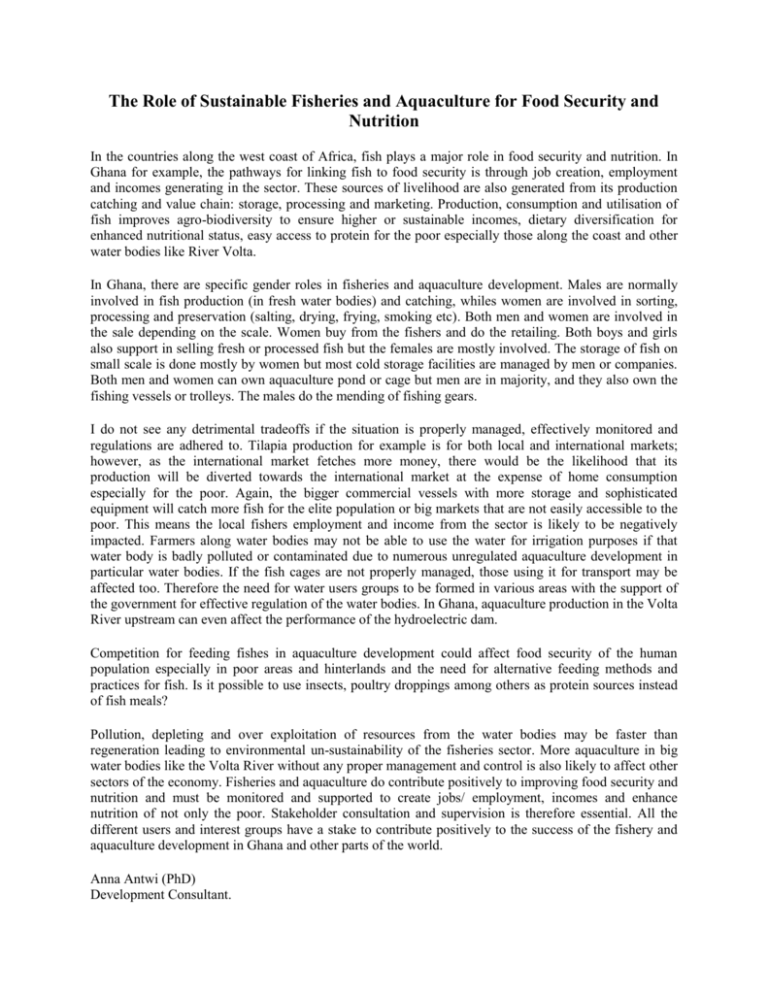
The Role of Sustainable Fisheries and Aquaculture for Food Security and Nutrition In the countries along the west coast of Africa, fish plays a major role in food security and nutrition. In Ghana for example, the pathways for linking fish to food security is through job creation, employment and incomes generating in the sector. These sources of livelihood are also generated from its production catching and value chain: storage, processing and marketing. Production, consumption and utilisation of fish improves agro-biodiversity to ensure higher or sustainable incomes, dietary diversification for enhanced nutritional status, easy access to protein for the poor especially those along the coast and other water bodies like River Volta. In Ghana, there are specific gender roles in fisheries and aquaculture development. Males are normally involved in fish production (in fresh water bodies) and catching, whiles women are involved in sorting, processing and preservation (salting, drying, frying, smoking etc). Both men and women are involved in the sale depending on the scale. Women buy from the fishers and do the retailing. Both boys and girls also support in selling fresh or processed fish but the females are mostly involved. The storage of fish on small scale is done mostly by women but most cold storage facilities are managed by men or companies. Both men and women can own aquaculture pond or cage but men are in majority, and they also own the fishing vessels or trolleys. The males do the mending of fishing gears. I do not see any detrimental tradeoffs if the situation is properly managed, effectively monitored and regulations are adhered to. Tilapia production for example is for both local and international markets; however, as the international market fetches more money, there would be the likelihood that its production will be diverted towards the international market at the expense of home consumption especially for the poor. Again, the bigger commercial vessels with more storage and sophisticated equipment will catch more fish for the elite population or big markets that are not easily accessible to the poor. This means the local fishers employment and income from the sector is likely to be negatively impacted. Farmers along water bodies may not be able to use the water for irrigation purposes if that water body is badly polluted or contaminated due to numerous unregulated aquaculture development in particular water bodies. If the fish cages are not properly managed, those using it for transport may be affected too. Therefore the need for water users groups to be formed in various areas with the support of the government for effective regulation of the water bodies. In Ghana, aquaculture production in the Volta River upstream can even affect the performance of the hydroelectric dam. Competition for feeding fishes in aquaculture development could affect food security of the human population especially in poor areas and hinterlands and the need for alternative feeding methods and practices for fish. Is it possible to use insects, poultry droppings among others as protein sources instead of fish meals? Pollution, depleting and over exploitation of resources from the water bodies may be faster than regeneration leading to environmental un-sustainability of the fisheries sector. More aquaculture in big water bodies like the Volta River without any proper management and control is also likely to affect other sectors of the economy. Fisheries and aquaculture do contribute positively to improving food security and nutrition and must be monitored and supported to create jobs/ employment, incomes and enhance nutrition of not only the poor. Stakeholder consultation and supervision is therefore essential. All the different users and interest groups have a stake to contribute positively to the success of the fishery and aquaculture development in Ghana and other parts of the world. Anna Antwi (PhD) Development Consultant.
